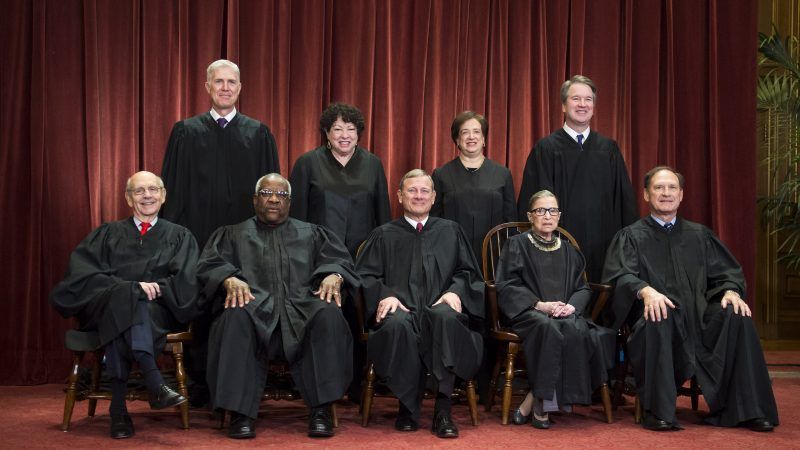Gorsuch and Alito Fight Over Criminal Sentencing and the Right to Trial by Jury
Another day, another conflict between the Supreme Court’s Republican appointees in a criminal justice case.

Today the U.S. Supreme Court struck down a provision of federal law that permitted judges, acting without a jury, to impose criminal sentences in certain contexts. According to the opinion of Justice Neil Gorsuch, that provision violated the Sixth Amendment right to trial by jury. "Only a jury, acting on proof beyond a reasonable doubt, may take a person's liberty," Gorsuch declared in United States v. Haymond. "Yet in this case a congressional statute compelled a federal judge to send a man to prison for a minimum of five years without empaneling a jury of his peers or requiring the government to prove his guilt beyond a reasonable doubt."
Writing in dissent, Justice Samuel Alito attacked Gorsuch for writing an opinion that "is not based on the original meaning of the Sixth Amendment, is irreconcilable with precedent, and sports rhetoric with potentially revolutionary implications."
The case centers on a man named Andre Haymond, who had served a prison sentence for possessing child pornography and was out on supervised release. When additional images of child pornography were discovered on his electronic devices, the federal judge in his case sentenced him back to prison for a mandatory minimum of five years. As the Court explained today in its ruling, under the federal law at issue, "if a judge finds by a preponderance of the evidence that a defendant on supervised release committed one of several enumerated offenses, including the possession of child pornography, the judge must impose an additional prison term of at least five years and up to life without regard to the length of the prison term authorized for the defendant's initial crime of conviction."
Haymond challenged the judge's sentencing on the grounds that it violated his rights under the Sixth Amendment. Justice Gorsuch, joined by Justices Ruth Bader Ginsburg, Sonia Sotomayor, and Elena Kagan, with Justice Stephen Breyer concurring in the judgment, voted today in favor of Haymond.
"The Constitution seeks to safeguard the people's control over the business of judicial punishments by ensuring that any accusation triggering a new and additional punishment is proven to the satisfaction of a jury beyond a reasonable doubt," Gorsuch wrote. "By contrast, the view the government and dissent espouse would demote the jury from its historic role as 'circuitbreaker in the State's machinery of justice' to 'low-level gatekeeping." Gorsuch made it clear that he would have no part of that.
As for the dissenters, they accused Gorsuch of seeking to obliterate a key part of the modern criminal justice system in the name of protecting the rights of criminal defendants. According to the dissent of Justice Alito, which was joined by Chief Justice John Roberts and Justices Clarence Thomas and Brett Kavanaugh, "the intimation" of Gorsuch's view is that "all supervised-release revocation proceedings must be conducted in compliance with the Sixth Amendment—which means that the defendant is entitled to a jury trial, which means that as a practical matter supervised-release revocation proceedings cannot be held."
This is not the first time that Gorsuch has clashed with Alito in a criminal justice case. It is not even the first time this week that the two have stood on opposite sides of a criminal justice dispute. Just two days ago, in fact, Gorsuch, again joined by the Court's Democratic appointees, ruled for a criminal defendant over a strongly worded dissent filed by Kavanaugh, which was joined by Roberts, Thomas, and Alito.
The next time you hear somebody talking about the Supreme Court's "conservative bloc" marching in intellectual lockstep, point them in the direction of these cases.


Show Comments (70)